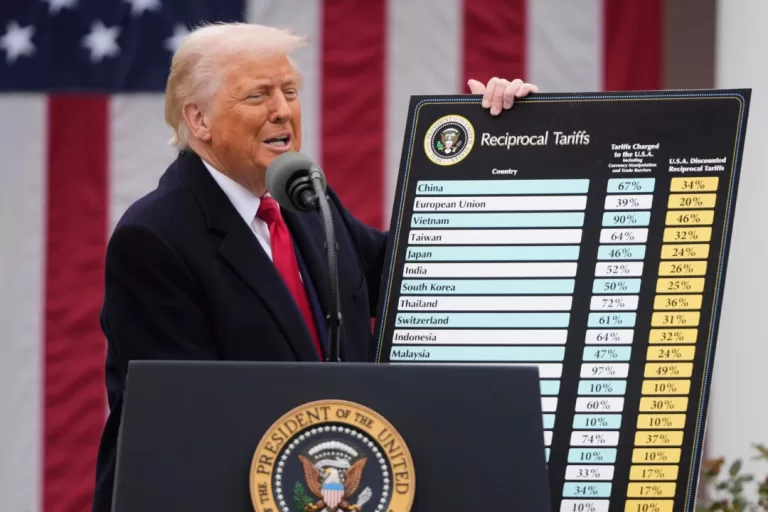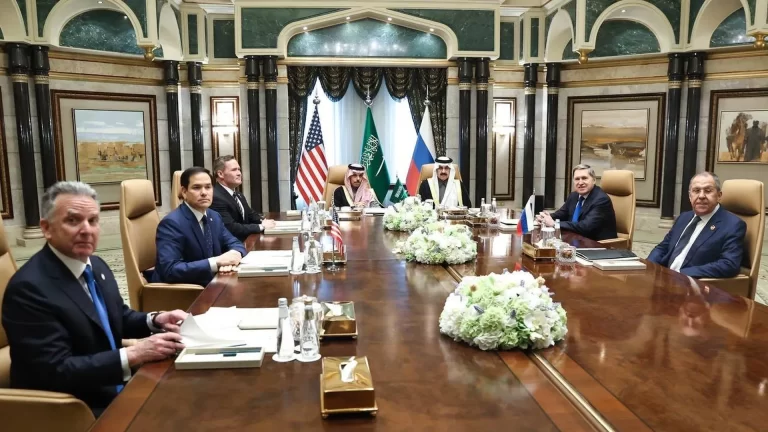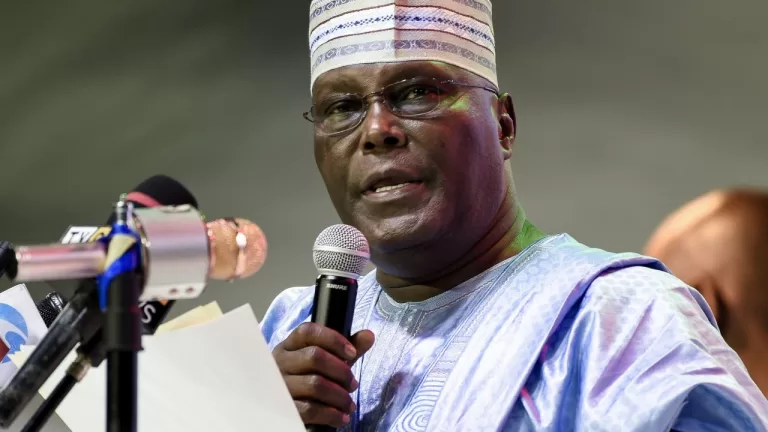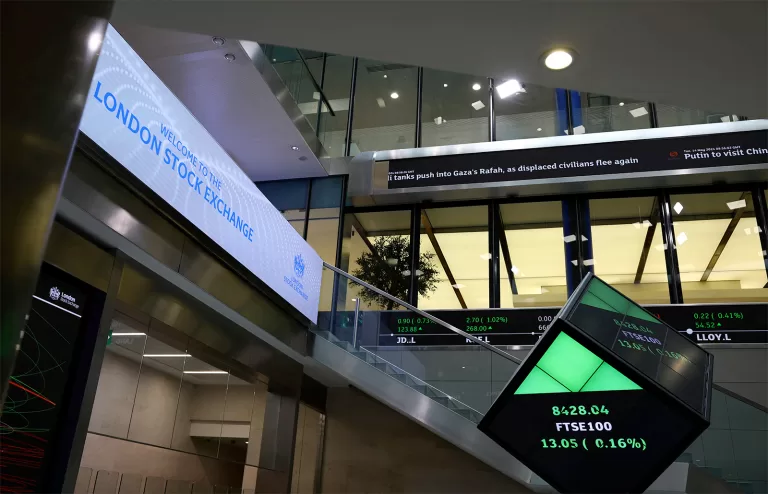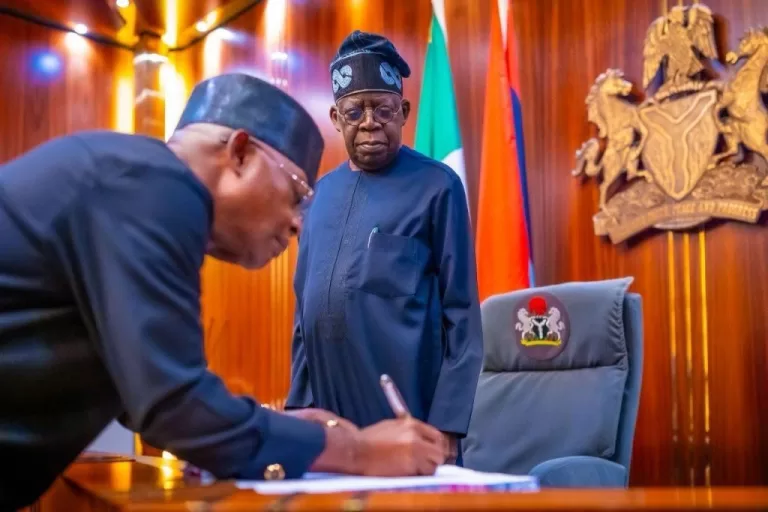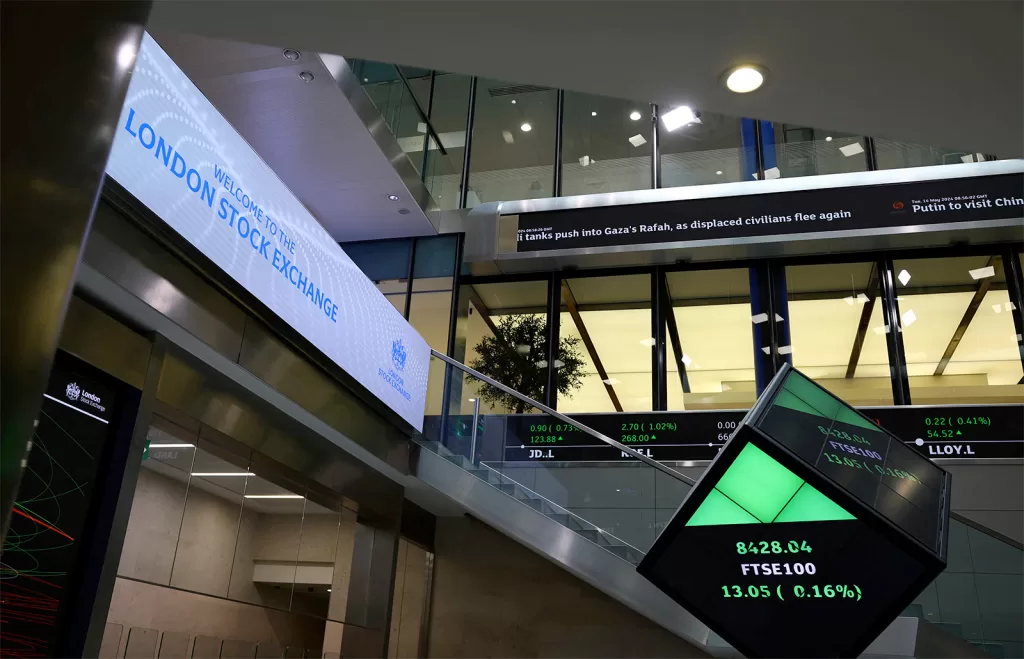
London’s FTSE 100 suffered its steepest one-day loss since the 2020 Covid crash, tumbling 4.95% on Thursday after U.S. President Donald Trump unveiled sweeping new tariffs, triggering global market chaos.
The tariffs — 10% on most U.S. imports and 25% on cars — sparked a sharp investor sell-off worldwide, with nearly £1.5 trillion wiped off global markets.
UK companies were among the hardest hit. Engineering giant Rolls-Royce dropped over 10%, while mining stocks like Antofagasta, Glencore, Fresnillo, and Anglo American fell more than 8%. Banks weren’t spared — both Barclays and NatWest slumped around 8%.
Across Europe and Asia, markets sank further:
- France’s CAC 40 fell 0.92%
- Germany’s DAX dipped 0.74%
- Japan’s Nikkei 225 nosedived 4.3%
- In the U.S., the S&P 500 and Nasdaq shed over 4% and 5%
“This is the most aggressive trade shock markets have seen in decades,” said Stephen Innes of SPI Asset Management.
Recession fears are now looming.
Olu Sonola of Fitch Ratings warned that the fallout “could push many countries into recession.”
Still, Trump remained defiant.
“The markets are going to boom,” he told reporters, claiming UK Labour leader Sir Keir Starmer was “very happy” with the move.
Starmer pushed back swiftly:
“Last night, the President of the United States acted for his country, and that is his mandate. Today, I will act in Britain’s interests with mine.”
UK Government Prepares Response
The UK has opened a public consultation on retaliatory tariffs until May 1 and published a list of U.S. goods that could face import duties.
Business Secretary Jonathan Reynolds said:
“We reserve the right to take any action necessary if a deal is not secured.”
China Hits Back
Beijing announced 34% tariffs on U.S. goods starting April 10 and introduced new export controls on rare-earth metals, essential to the global tech industry.
Its Commerce Ministry said the move was “to better safeguard national security and interests.”
What’s at stake?
Thousands of UK jobs — particularly in the automotive sector — may now hang in the balance, as fears of a full-scale trade war escalate.


